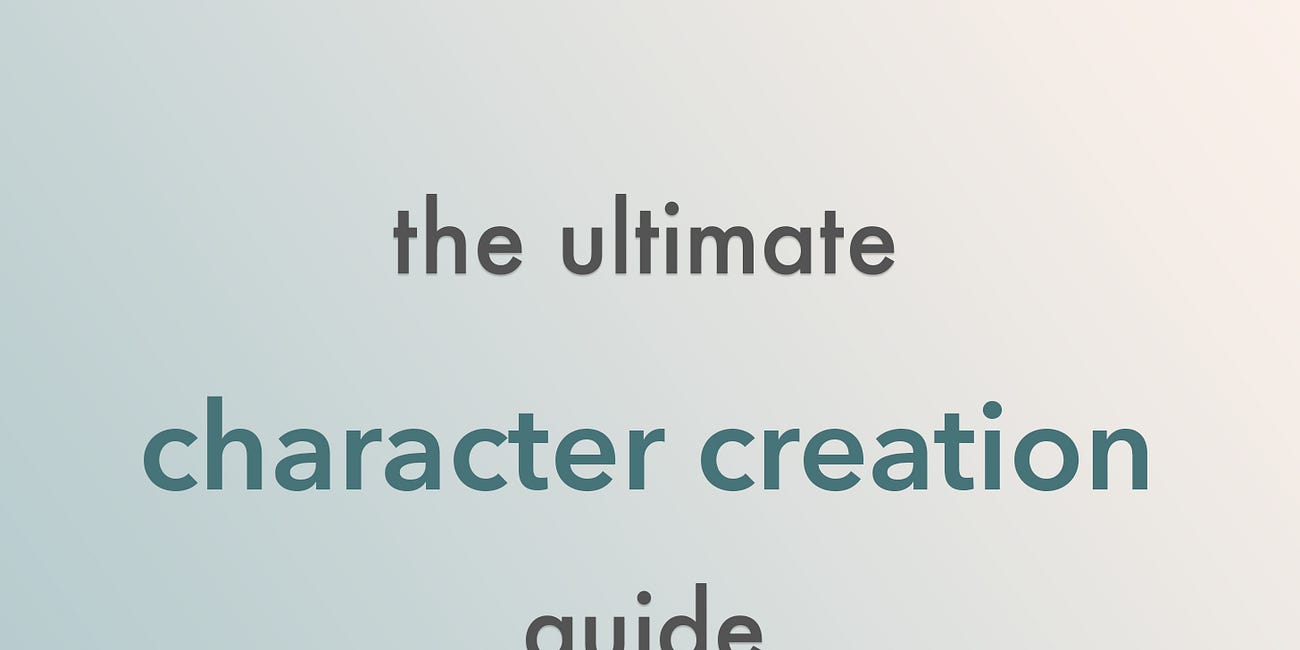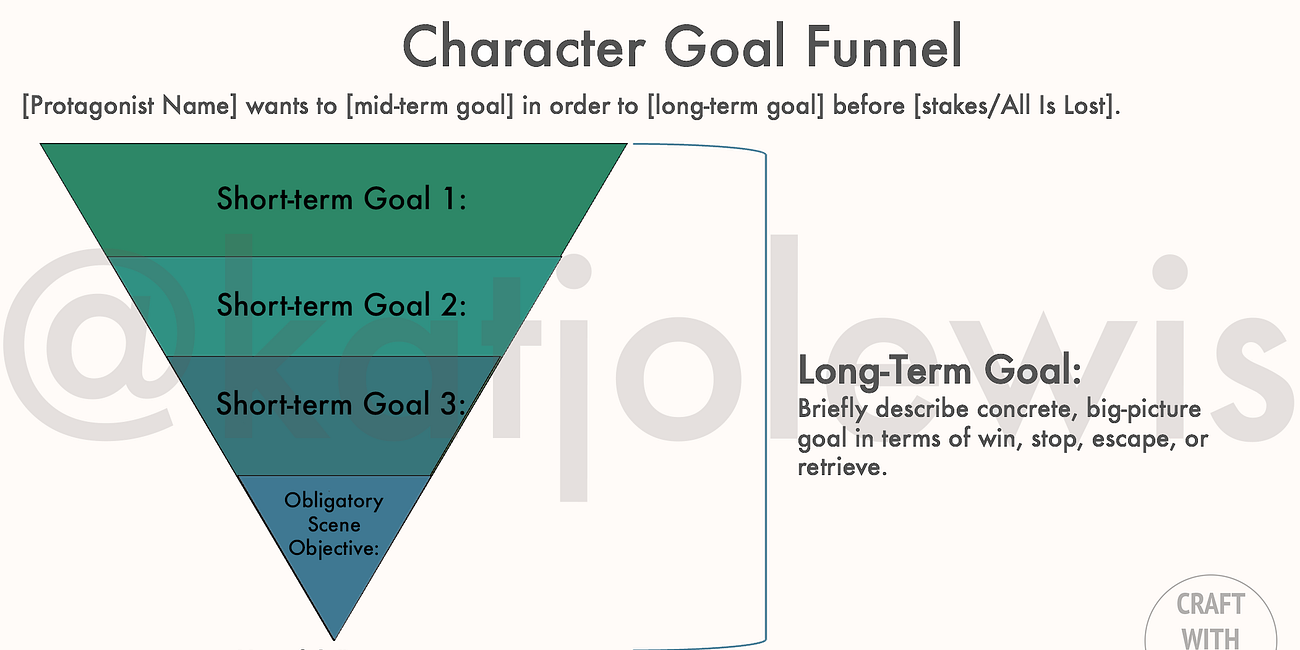How to Crush Writer's Block
12 Guiding Questions to Jump Start Your Story
Cards on the table, I don’t believe in writer's block. If I’m stuck while writing, I’m typically facing one of two problems: (1) stress or (2) a lack of direction.
To check if stress is the issue, I ask myself three questions:
Have I eaten enough?
Have I slept enough?
Have I drunk enough water?
If the answer is no to any of these questions, I spend my writing time meeting those needs. I personally can’t write on an empty stomach or with no sleep or while dehydrated. When I was younger I used to push through, thinking that grit and sheer will would make my writing great. But I’ve since learned that I write best when I am physically taking care of myself.
Last week, I mentioned on Notes that I finished the latest draft of my novel.
I am so incredibly proud of this accomplishment, but in the weeks leading up to finishing this draft, I let my self-care routine slip away. I spent the last month running on three to five hours of sleep to finish my book. On top of that, when I’m sleep deprived, I have a hard time eating even if I’m hungry. This hunger and lack of sleep creates problems in other aspects of my life and inevitably impacts my writing. This time around, I got lucky because I was able to finish my draft, but by the end of it, I was completely blocked creatively. If that block had set in before I finished the draft, it would have opened a floodgate of self-doubt that would’ve further hindered my writing. All of this is to say that taking care of yourself will also take care of your writing.
Now, if I answer yes to all of the questions above, I’m usually stuck because I don’t have a concrete direction for the story I’m working on. This lack of direction often happens because I haven’t spent enough time thinking about the story outside of the actual drafting or revision process. This thinking is different from outlining. Outlining is writing down a concept you already have established in your mind. Typically, when I have a block, it’s a sign that I am missing a key story element, and the best thing I can do to move forward is a low-stakes writing exercise that helps me discover that missing piece. In his book, The 90-Day Novel1, Alan Watt refers to this process as the act of “developing a relationship with your story.”
Here are the twelve guiding questions I’ve found most helpful when developing a relationship with a story.
Writing Exercise
Instructions
For 25 minutes, free-write answers to the following questions in your notebook. Actually write down your answers. If you just think your answers in your head, you’re developing a relationship with your thoughts, not your writing. The only way to develop a relationship with your writing is to actually write out your answers.
You can either set a two-minute timer for each question or a 25-minute timer as you explore the questions that interest you most. I recommend writing by hand if you can.
While all of these questions are geared toward the perspective of the protagonist, it’s also helpful to answer these questions from the point of views of your other characters.
Guiding Questions
What does the protagonist’s family, work, and social life look like before the start of the story?
Broken Place: Who or what is troubling the protagonist before the story begins?
How is this struggle preventing the protagonist from being satisfied with their life?
What is the protagonist’s core misbelief about the world?
Inciting Incident: What single, concrete event thrusts your protagonists out of the comfort zone of their ordinary world?
How does this event make your protagonist’s broken place even worse?
What concrete action does the protagonist need to take now to improve their broken place?
Following the inciting incident, what does your protagonist want to win, stop, escape, or retrieve?
What concrete thing do they need to believe they have gotten what they want?
What bad thing will happen if the protagonist doesn’t get what they want?
What is their internal need? What lesson do they need to learn in order to survive the story?
How is their misbelief driving the protagonist toward their external goal and away from their internal need (or vice versa)?
Try the exercise out and let me know how it goes in the comments. As always, take anything that’s helpful to you and your writing life and leave everything that’s not behind.
If you’re interested in learning more about why these questions are important and how they can improve a story, check out our craft lessons. Each lesson explores the concrete tools I use every day as a professional fiction writer and video game narrative designer. By the end of every post, you’ll walk away with actionable steps and guiding questions that will help you write the best story possible.
The One Pager
Learning Objective: By the end of this post, you will know how to create active protagonists by outlining their (1) desires, (2) obstacles, and (3) key decision points with six guiding questions.
How to Write a Subplot
Learning Objective: By the end of this post, you will know how to use the Character Goal Funnel to create a subplot in your story.
Recap
Tips for Overcoming Writer’s Block
Ask yourself three questions:
Have I eaten enough?
Have I slept enough?
Have I drunk enough water?
If the answer is no to any of those questions, take care of yourself first before you write.
If the answer is yes, use the writing exercise above to develop your relationship with your story.
Tell me about your own experiences with writer’s block. How do you take care of yourself while working on a big writing project? What are your strategies for overcoming writer’s block? Share your tips in the comments:
Until next time,
Kat
This post includes affiliate links. I may receive a commission if you make a purchase through these links. Purchasing books through the Craft with Kat Bookshop supports the free writing resources I share here on Substack.




I agree - you need to be rested, satiated and generally have your physical needs met to concentrate. Thanks for the guiding questions!